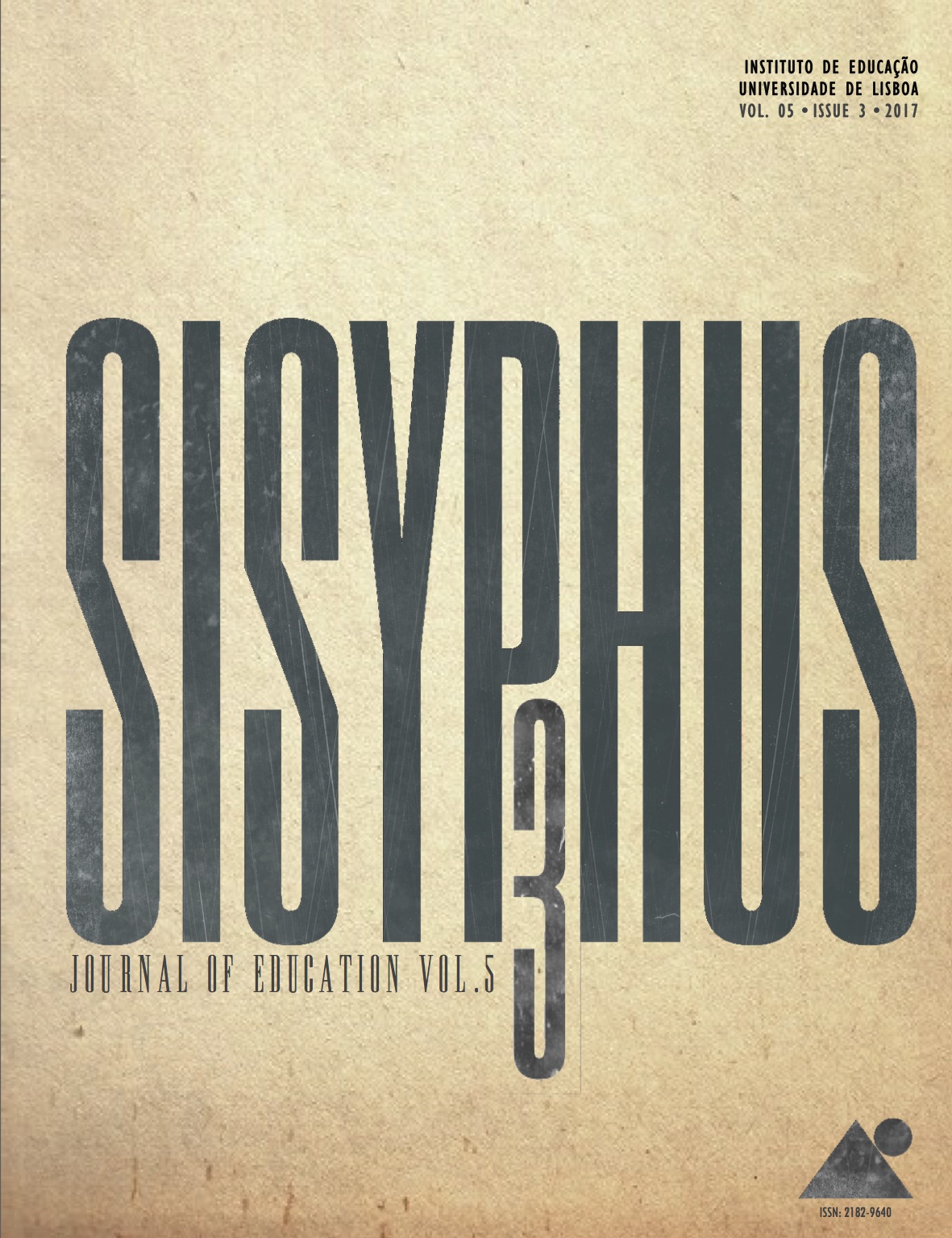Science Teachers as Key Actors in Responsible Research and Innovation: Evaluation of a Teacher Training Program
DOI:
https://doi.org/10.25749/sis.12274Palavras-chave:
Responsible Research and Innovation (RRI), Teacher Professional Development, Science Education, Questionnaire, Validation of instruments / Investigação e Inovação Responsáveis (IIR), Desenvolvimento Profissional dos Professores (DPP), Educação em CiênciaResumo
AbstractThis work presents the design and evaluation of a teacher professional development (TPD) program intended to promoting responsible research and innovation (RRI) through science education. The training course, builds on teachers’ beliefs, provides opportunities to experience the educational potential of the innovative approach, makes explicit links to the science curriculum and supports the development of specific teaching skills necessary to enact the underpinning science education model. Additionally, we present the validation of instruments to evaluate the impact of the TPD program on teachers’ beliefs. The analysis of pre-post results shows a positive evolution of participants’ beliefs in line with the science education model being promoted.
Resumo
Este trabalho apresenta a conceção e avaliação de um programa de desenvolvimento profissional de professores (DPP) destinado a promover a Inovação e Investigação Responsáveis (IIR) através da educação em ciências. O curso de formação baseado nas crenças dos professores proporciona oportunidades para experienciar o potencial educacional da nova abordagem, produz ligações explícitas com o currículo de ciências e fundamenta o desenvolvimento de capacidades específicas de ensino necessárias para determinar o modelo subjacente da educação em ciências. Além disso, apresentamos o modelo de validação dos instrumentos de avaliação do impacto do programa de desenvolvimento profissional nas crenças dos professores. A análise dos resultados pré-publicados mostra uma evolução positiva das crenças dos participantes em linha com o modelo da educação em ciências que está a ser utilizado.
Downloads
Downloads
Publicado
Edição
Secção
Licença
O Copyright (c) pertence à Sisyphus – Journal of Education. No entanto, encorajamos que os artigos publicados na revista sejam publicados noutros lugares, desde que seja solicitada a autorização da Sisyphus e os autores integrem a nossa citação de fonte original e um link para o nosso site.
Política de auto-arquivo
É permitido aos autores o auto-arquivo da versão final publicada dos seus artigos em repositórios institucionais, temáticos ou páginas web pessoais e institucionais.
Subscritor DORA
O Instituto de Educação da Universidade de Lisboa, editor da Sisyphus, é um dos subscritores da Declaração de São Francisco sobre Avaliação da Investigação (DORA).





